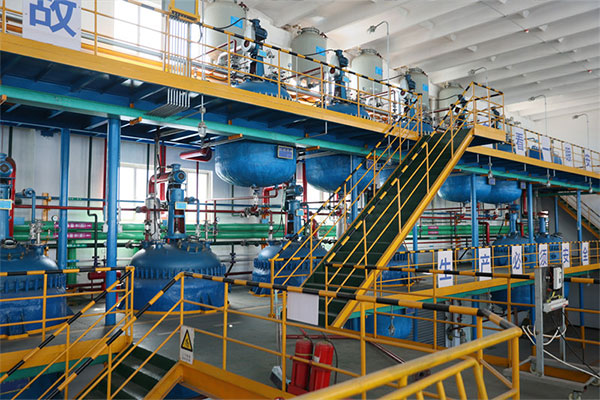
Lubricant Additives: What Determines the Quality of Lubricating Oil?
The quality of lubricating oil is a critical factor influencing the performance, lifespan, and operational efficiency of equipment. High-quality lubricants not only reduce friction and minimize wear but also prevent oxidation, corrosion, and the formation of deposits. As an essential component of lubricating oils, lubricant additives have a significant impact on their performance. So, what exactly determines the quality of lubricating oil? This article will explore various aspects, including base oil selection, additive formulation, antioxidant capability, and application scenarios.
What Are Lubricant Additives?
Lubricant additives are complex formulations composed of multiple functional additives combined in scientifically determined ratios. Their primary purpose is to enhance the overall performance of lubricating oils, including antioxidant capability, anti-wear properties, detergency, corrosion resistance, and viscosity stability. These additives work synergistically with base oils, allowing lubricating oils to maintain optimal performance under various challenging conditions and extending the service life of equipment.
Typically, lubricant additives include antioxidants, detergents, dispersants, anti-wear agents, extreme pressure agents, corrosion inhibitors, and viscosity improvers. Each additive serves a specific function within the lubricant, and through precise formulation and optimization, multiple functions can be effectively combined to achieve the desired lubrication performance.
In modern lubricant development and production, additive formulation design is a highly sophisticated and refined process. It requires consideration of interactions between different additives and ensures compatibility with various types of base oils. As a professional manufacturer of lubricant additives and compound agents, UNPChemicals is dedicated to providing high-performance, environmentally friendly additive solutions to meet diverse lubrication needs.
The Relationship Between Base Oil Selection and Lubricant Quality
Base oil is the most essential component of lubricating oil, typically accounting for 70%-90% of the formulation. Its properties directly determine the fundamental performance of the lubricant, including viscosity, thermal stability, low-temperature fluidity, and antioxidant capability. Currently, base oils are mainly classified into three categories: mineral oils, synthetic oils, and vegetable oils.
Mineral Oils: Derived from petroleum refining, they are inexpensive and widely used, but their antioxidant capacity and high-temperature stability are relatively poor.
Synthetic Oils: Produced through chemical synthesis, these oils offer better high-temperature stability and antioxidant properties. PAO (Poly Alpha Olefin) and ester-based oils are the preferred choices for high-performance lubricants.
Vegetable Oils: Known for their biodegradability and good lubricity, but with poor thermal stability, making them more suitable for environmentally friendly lubricants.
High-quality lubricating oils often use synthetic base oils due to their superior performance under extreme temperatures and better compatibility with additive systems.
The Role and Optimization of Lubricant Additives
Lubricant additives are functional agents prepared through chemical synthesis or physical blending, aimed at enhancing the overall performance of lubricating oils. Common components of lubricant additives include:
Antioxidants: Delay the oxidation process of lubricating oil, extending its service life. Common types include phenolic and amine antioxidants.
Detergents and Dispersants: Prevent the formation of deposits and keep engines clean.
Anti-wear and Extreme Pressure Agents: Provide additional protection under high-load conditions, reducing wear.
Corrosion Inhibitors and Rust Preventatives: Protect metal components from corrosion and rusting.
Viscosity Improvers: Enhance viscosity stability at high temperatures.
Formulation optimization of additives is a critical factor in determining lubricant quality. Scientifically optimized additive ratios can significantly enhance the antioxidant capacity of lubricating oil and provide effective protection under high-temperature, high-pressure, and harsh operating conditions.
Antioxidant Capability: A Core Indicator of Lubricant Quality
Oxidation is a primary factor affecting the performance of lubricating oils during use. Particularly in high-temperature, high-pressure, or long-term applications, lubricants can easily react with oxygen in the air, resulting in increased viscosity, higher acid values, and the formation of sludge and deposits.
Antioxidants in lubricant additives interact with free radicals or peroxides, interrupting or delaying the oxidation process, thereby significantly enhancing the antioxidant performance of lubricating oils. Studies have shown that high-performance additives can extend the oxidation induction period of lubricating oils by several times, playing a critical role in prolonging oil life and protecting equipment.
Application Scenarios and Compatibility with Lubricant Quality
Different application scenarios require lubricants with varying characteristics. For example:
Engine Lubricants: Require excellent antioxidant capacity, detergency, and anti-wear properties.
Industrial Lubricants: Demand superior thermal stability and corrosion resistance.
Environmentally Friendly Lubricants: Focus on biodegradability and eco-friendliness.
UNPChemicals offers tailored additive solutions designed for various application scenarios, ensuring stability and efficiency under diverse operating conditions through precise formulation design and optimization.
Conclusion
The quality of lubricating oil is determined by the selection of base oils, the formulation of additives, and their compatibility with specific application scenarios. High-quality lubricant additives can significantly enhance the antioxidant performance, anti-wear capability, and overall stability of lubricating oils. As a professional manufacturer of lubricant additives and compound agents, UNPChemicals is committed to providing efficient, environmentally friendly lubrication solutions for a wide range of applications.